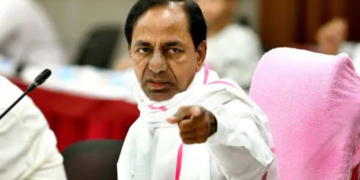For the regulatory sandbox, a governing council, advisory board, and operations team are already in place to provide direction, advise on business aspects, and manage day-to-day operations.
The Web 3.0 Regulatory Sandbox, which the Telangana Government proposed in December, will be ready in a few weeks. The Sandbox was proposed by the State’s Emerging Technologies wing to provide stakeholders in the Web 3.0 ecosystem with a platform to test their product and get it validated by regulators.
The regulatory sandbox already has a governing council, advisory board, and operations team in place to provide direction, advise on business aspects, and manage day-to-day operations.
“We have received approximately 20 applications from various stakeholders. They come from the financial technology, healthcare, and other industries. The emphasis is on using artificial intelligence to solve societal problems, according to L Rama Devi, Director Emerging Technologies.
These wings will include representatives from the government, industry, and the investor community, and they will advise companies on how to address problems while also scaling them up. She stated that, depending on the requirement, a representative from the relevant regulatory body will be present to assess the use cases.
For example, if it is a fintech idea, the RBI will make an effort to participate.
“We will also have experts from that domain. “We hope to start the first cohort formally in February,” she said. The startups or participating businesses will have six months to develop their concepts.
“We will also assess if the use cases submitted really need a regulatory sandbox approach or not. The testing will also be done by members of the user community. “They can provide feedback to startups on features, functionality, and usability,” she explained.
Web3 ecosystem partners had raised concerns about regulatory ambiguity, which was preventing them from developing new creative solutions and products. She stated that the government will enable firms to test and learn in a live environment through the Web 3.0 Regulatory Sandbox. The goal is to speed up innovation in the Web 3.0 industry by facilitating robust testing mechanisms and firm support. New products, services, solutions, business models, and even policies are examples of testable innovations.
Previously, the State Government collaborated with Devfolio to host large-scale Web 3.0 events in Hyderabad. EthforAll, an event focused on ‘Public Goods,’ is scheduled for February.
The Telangana effort assures startups, domain experts, and others that more doors will open for them at the national and international levels. While the sandbox allows participants to navigate the regulatory landscape, it also assists regulators in understanding the barriers to beneficial innovation. The Sandbox will run in a continuous mode.
Observations on regulatory policies will be forwarded to appropriate regulatory bodies. State-level policies will be drafted as needed to implement Sandbox findings, she said.
Rama Devi was recently named one of Google’s three “Women in AI” at its annual event Google for India. “I am overjoyed with the recognition. I believe this will inspire a few women to use technology to better the lives of ordinary people. Recognized is a responsibility. I will continue to focus on identifying technology use cases and developing solutions that benefit people. “That’s the approach we’ve taken as well,” she explained.







